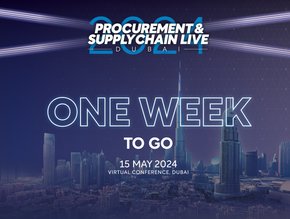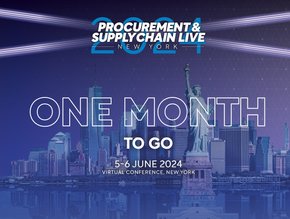Mitsubishi Electric: Change Management in Manufacturing

Mitsubishi Electric is regarded as one of the world’s most renowned names in the manufacturing and sale of electrical and electronic products and systems.
Founded in 1921, Mitsubishi Electric has been at the forefront of Japan’s technical ingenuity and product innovation. Following its first successful product - an electric fan built for consumer use - the organisation has continued to create a long list of firsts and groundbreaking new technologies that have shaped its business fields worldwide.
Frederik Gesthuysen is the Manager Sales Administration and Marketing at Mitsubishi Electric Europe B.V. He has witnessed first hand how the manufacturing industry has transformed due to the introduction of the Internet of Things. “The key to surviving today’s severe market competition is the prompt and timely implementation of IoT, not only on the production shop floor but also throughout the manufacturing field,” says Gesthuysen. “In response to this need, we already developed the “e-F@ctory” integration solution back in 2013. At its core is “edge computing,” advanced technologies that utilise AI to collect data from the production shop floor and analyse it in real-time, thereby improving manufacturing. Of course, such a level of digitalisation and automation is not possible to realise without any 3rd party support; therefore, we integrated more than 900 “e-F@ctory alliance” partners.”
Manufacturing is driven by technology. With the importance of leveraging the latest trends essential to success in the industry, Gesthuysen recognises that digitalisation is at the heart. “Our customers expect the networking to bring the next great leap in development and thus a competitive advantage,” says Gesthuysen. “The digitalisation of processes and products also goes along with new solution offerings and business models, especially in the field of service. For the future viability of machine tool manufacturers, this means that services, consulting and service offerings are becoming even more important. Another crucial factor for automated and networked production is the integration of robots into manufacturing systems.
“Machine tools are increasingly merging with the robot and are no longer standing side by side as separate components. Mitsubishi Electric reacted to this by introducing our ‘Direct Robot Control’ (DRC) functionality, which enables our robots to be connected to and directly operated by our CNC.”
In such a competitive industry, Gesthuysen understands how vital it is to be agile and lean in order to adapt to the latest trends. “It’s important to always be on top when it comes to recognising trends and driving innovation,” he explains. “On the other side, you need to make sure not to blindly follow those trends and just rush into the market with new developments.” Mitsubishi Electric follows the Japanese “Kaizen” philosophy. Kaizen is a continuous process that never ends and means change for the better. Kaizen sees improvement in productivity as an ongoing and gradual process. “To us, it is particularly important that innovations are introduced gradually so that they remain manageable,” says Gesthuysen. “Therefore, it’s not a question of radical breaks and doing everything differently from one day to the next. Instead, it is a slow, controlled process in which everyone involved engages in repeated questioning, checking, trying-out and adaptation. We think that this is the best approach in order to really be able to listen and adapt to our customer’s requirements and assure the best possible quality of our products and solutions.”
Roman Gaida is the Deputy Head of CNC Mechatronics Division EMEA at Mitsubishi Electric, with over 20 years of professional experience combined with entrepreneurial thinking and a strong ability for customer needs, leadership and cultural change. “It all started with a gap evaluation in cooperation with an external partner,” explains Gaida. “Since the market and also our customers are changing faster than ever, we had to adapt our approach and processes to the changing environment. We had room for development in regards to usage of data, knowledge transfer and historically grown structures. The goal was to build up a scalable business which allows us to be more innovative and flexible, but at the same time to create a workplace which everyone enjoys working in.”
As a result of the impact of COVID-19, Gaida is relieved that his organisation began its digital transformation journey three years prior to the pandemic. “COVID-19 meant companies had to transform operations almost overnight, but this wasn’t completely the case for us,” says Gaida. “Apart from our transformation, we also went through a cultural transformation which included experiments with new work elements such as remote working and transformational leadership approach to enable our teams to drive projects and make decisions on their own. At the end of the day, going from office to remote working wasn’t as hard as it might have been because we prepared so well.”
Gesthuysen believes that strategic partnerships are a vital part of his company’s global CNC strategy. “Trust and regular communication are key when it comes to a long-term partnership,” he says. “Some of the world's leading machine tool manufacturers, such as INDEX-Traub, Citizen Machinery and Mazak have been using our CNC technology for more than 40 years. We don’t just deliver our components, but rather develop and customise our technology according to their requirements. For some customers, our R&D department in our main factory, Nagoya Works in Japan is arranging daily meetings with them in order to harmonise and discuss the current status on a global level.”
With the future in mind, Gesthuysen has a vision of what he believes the industry could look like in the coming years. “In the age of Industry 4.0, consistent networking, data analysis, robotics and 3D printing are some of the new trends that are redefining the manufacturing space,” he says. “These technology trends are already paving the way for Supply Chain 4.0 and transforming manufacturing facilities into agile and intelligent manufacturing services that are fully automated, environmentally friendly, self-learning and able to flexibly identify and avoid delivery problems in advance. In addition, the concept is to function globally, sustainably, and cost-optimised to be wirelessly integrated with the supply chain network via powerful communication technology such as 5G.”






